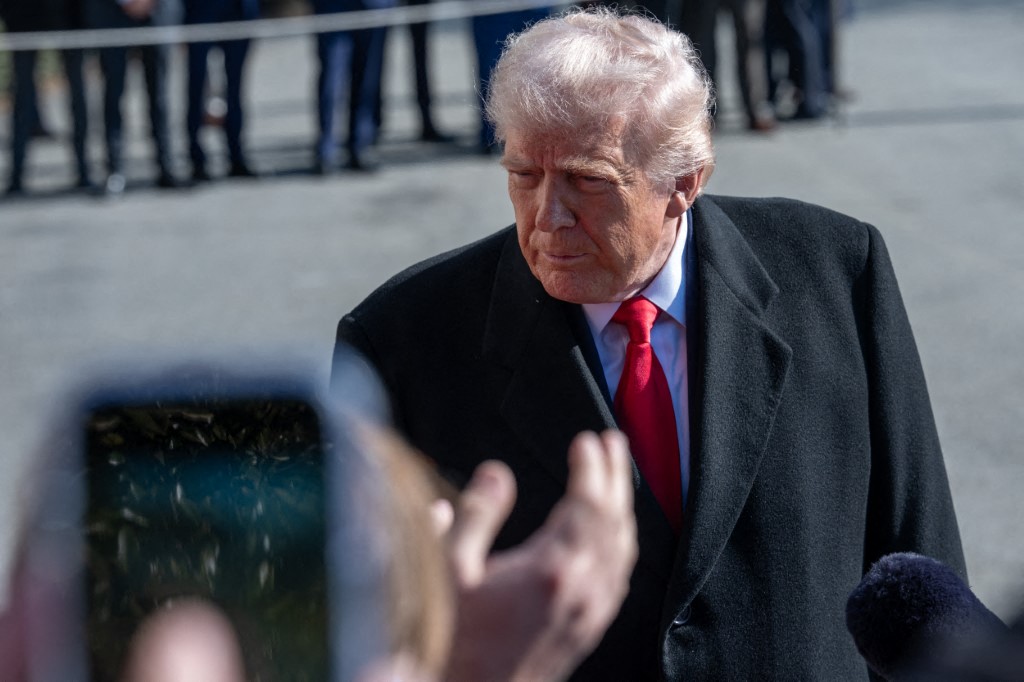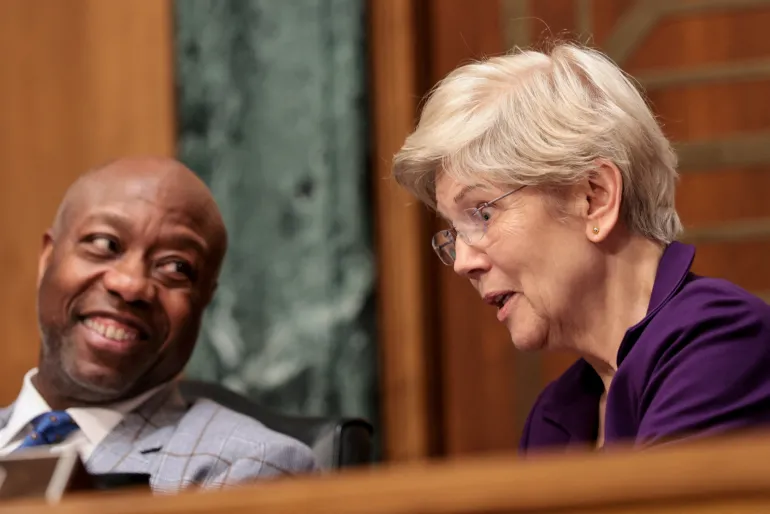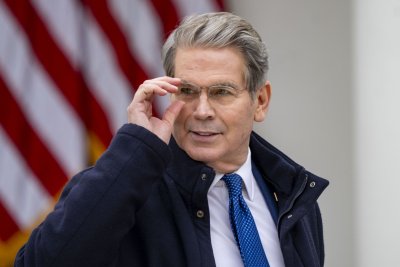Kinetic Treasury Arrives | Global Finance Magazine
New blockchain solutions are integrating corporate treasury and retail banking, and opening the transactions system to multiple issuers of tokenized deposits and stablecoins. But regulators worry these innovations could make the global system more fragile.
Tuesday, 2:14 PM GMT: Elena, the treasurer of a global logistics giant in Rotterdam, stares at a red alert on her dashboard. A supplier in Singapore demands an immediate $40 million settlement to release a shipment of semiconductors. The old banking system would tell her she’s out of luck; her euro liquidity is trapped in a T+1 settlement cycle and the foreign-exchange swap markets are too slow for an instant release.
But Elena’s treasury operations are kinetic. She hits “Execute.”
Four thousand miles away in Chicago, it is 8:14 AM: David, a retail banking client, is buying coffee. His phone buzzes with a silent notification: “Yield Generated: $4.20.”
He doesn’t know it, but in the last 18 seconds, J.P. Morgan’s Kinexys algorithm borrowed the digital title of his tokenized vacation home, which was sitting idle in his portfolio, then pledged it as collateral to mint $40 million in intraday stablecoins for Elena.
In less than a minute, the transaction is over.
Elena’s chips are released in Singapore.
The bank has managed its risk without touching its own balance sheet.
And David has paid for his morning coffee just by owning a house.
Two-tiered digital asset strategies, combining institutional/bank-led Tier 1 and retail/public chain Tier 2 transactions to merge corporate treasury and retail banking, are now a reality. Programmable money appears inevitable; the struggle is over who—banks or crypto-natives—will control this “kinetic” new world connecting retail assets with corporate liquidity.
“Our mandate for Kinexys by J.P. Morgan is to transform how information, money, and assets move around the world from an institutional perspective,” says Arif Khan, chief product officer for Kinexys Digital Payments. “Since inception, over US$3 trillion in transaction volume has been processed on the Kinexys platform, which processes on average more than US$5 billion daily in transaction volume.” Although Kinexys’s offerings are not aimed at retail clients, it enables banks to use retail assets as collateral for institutional clients.
Tony McLaughlin, a contributor to “The Regulated Liability Network,” a 2022 white paper and blueprint for bank-led digital money, left Citi last year after a two-decade career to found Ubyx, a stablecoin clearing system. He sees the November 2024 US elections as clarifying the route for banks to interact with public chains.
“This is because stablecoin regulation was more likely to pass, and stablecoins live on public chains,” he says. “It would be intolerable if only non-banks were able to offer stablecoins on public chains, so it would be necessary for banks to be able to enter the market.”
McLaughlin predicts the development of a “pluralistic market structure, just like we have in [credit] cards,” with “many issuers and many receivers” and a variety of issuers—including both banks and non-banks—offering tokenized deposits and a variety of stablecoins. The “great unlock,” he foresees, is building “a common acceptance network.” Corporate treasurers will utilize a mixture of tokenized deposits, stablecoins, and tokenized money market funds from different issuers.
Ubyx is working to get banks and fintechs to offer wallets for clients to receive stablecoins and tokenized deposits, ensuring transactions “are processed within the regulatory perimeter and go through KYC, AML, fraud, and sanctions checking,” McLaughlin says. The current situation, where “stablecoins are transacted across self-custodial wallets,” is less desirable, he says, since the supply of these unregulated wallets is “infinite” while the supply of regulated wallets is “essentially zero.”
McLaughlin blames regulators who have “placed a large ‘Keep Off the Grass’ sign on bank participation in public blockchain,” allowing the “vacuum” to be “filled by unregulated players.” Bank and fintech involvement will make these new transaction processes safer, he argues, and “dramatically increase the regulated nodes in these networks.” He draws a parallel to the evolution of streaming media; just as content piracy gave way to streaming TV and music from “reputable players,” so the transition to a more honest and reliable digital transactions system will come about on public blockchains.
“We believe that both private and public blockchain options will coexist moving forward,” says Khan. “Institutional firms that want to keep their money movements on a private permissioned network will still benefit from the 24/7, 365-day, programmable benefits that blockchain infrastructure provides.”

The Interoperability Imperative
While banks pitch kinetic treasury as a liquidity upgrade, regulators and wealth strategists warn it may introduce new fragility into the global transactions system. Without a public digital currency, Fabio Panetta, governor of the Bank of Italy, has warned, the payments market will be dominated by “closed-loop” private solutions, such as proprietary stablecoins or Big Tech platforms, that do not interoperate, fragmenting the monetary system and threatening the “singleness” of currencies.
J.P. Morgan’s Khan counters that interoperability between deposit tokens and other digital cash will be essential for scale and adoption.
“We are proactively working with other actors in the industry, such as DBS in Singapore, to develop a framework for interbank tokenized deposit transfers across multiple blockchains,” he says. “This would potentially allow the institutional client bases of each bank to pay each other, exchanging or redeeming their deposit tokens across either bank’s platform and across borders with real-time, around-the-clock availability.”
For example, a J.P. Morgan institutional client would be able to pay a DBS institutional client using JPM Coin on the Base public blockchain, which the recipient could exchange or redeem for equivalent value via DBS Token Services.
“This aims to uphold the singleness of money,” Khan argues, “where deposit tokens across banks and blockchains are fungible and represent the same value: a key principle that is imperative in an increasingly multi-chain, multi-issuer world.”
The Clearing House, which owns and operates core payments system infrastructure in the US, is currently discussing and analyzing stablecoins and tokenized deposits. President and CEO David Watson suggests that tokenized deposits could be a more significant development than stablecoins, especially for large multinational corporations and wholesale banking.
That’s because tokenized deposits are viewed as “truly a fiat instrument,” he argues, while a stablecoin is merely a “representation of an instrument.” This directly impacts the risk profile for corporate treasurers. “If you’re a multinational corporate treasurer,” Watson asks, “how much of the company’s balance sheet are you willing to hold in different stablecoins, with all that exposure, versus fiat money backed by the issuing government?”
The concerns about trust and risk that Watson highlights, directly inform initiatives like JPM Coin, which Khan notes was driven by clients seeking to make public blockchain payments using a trusted, familiar bank product. With Kinexys Digital Payments, treasurers can pre-define rules that automatically trigger payments, foreign exchange conversions, and liquidity movements in real time. Decisions are executed without manual intervention and are not subject to banking cut-off times.
BMW Group uses Kinexys Programmable Payments for fully pre-programmed euro-to-US-dollar FX transactions and corresponding fund movements. Since both the FX and payment settlement occur instantly on the same blockchain platform, the process operates 24/7 without human intervention or traditional settlement windows. This allows BMW to optimize global liquidity, reduce idle balances, and execute near-instant, multi-currency cross-border payments.
The traditional method for large multinational corporations to manage liquidity—relying on extensive multi-currency buffers and manual fund transfers—is inherently capital-inefficient and complex, Khan contends. Blockchain-based infrastructure, by contrast, offers a fundamental shift, enabling a new, more dynamic model that moves beyond the limitations of conventional settlement windows.
“We are going to see a new paradigm emerge,” McLaughlin predicts. “We are going to move from the age of bank accounts to the age of tokens, chains, and wallets.”











